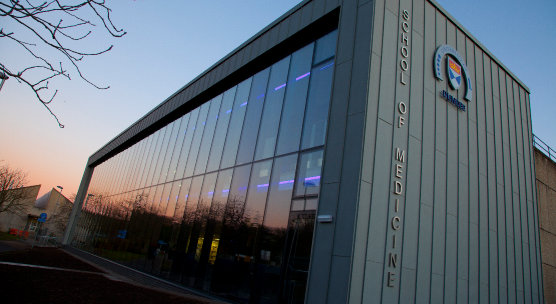New study testing the delivery of the best asthma treatment based on genetics
Published On Wed 14 Dec 2016 by Grant Hill

A study by researchers from across the UK is aiming to discover whether treating asthmatic children according to their genetic status can improve their quality of life by reducing hospitalisations, missed school days and other problems caused by the disease.
Previous studies have shown that 100,000 young people are routinely prescribed an asthma controller medication called salmeterol, which can offer little benefit to some of them. Young volunteers are now being sought for the Personalised Medicine for Asthma Control (PACT) study developed by researchers at Brighton and Sussex Medical School (BSMS), together with colleagues at the Universities of Dundee, Aberdeen and Queen Mary University of London working with General Practitioners and funded by children’s charity Action Medical Research.
Children and young adults with asthma are being asked to join the study to see whether they respond better to a personalised approach to asthma treatment than to the current standard treatments. PACT is looking to involve young people aged 12-18 years with asthma.
One of the first participants to sign up was Molly Lynch, from Chichester. Molly was 11 when she was diagnosed with asthma following a bout of pneumonia two years ago. Having previously suffered no respiratory problems she now needed an inhaler to control her asthma, experienced wheezing and feelings of being tight-chested. Of greatest concern were the coughing fits Molly experienced each morning and which could go on for an hour at a time.
Molly’s mother Sarah heard about the PACT trial during a visit to their GP surgery. Molly agreed to take part and was randomised to a personalised medicine group. As a result of the personalised treatment she received, Molly’s asthma improved significantly. All her symptoms have reduced, her Peak Flow Meter readings have improved and she now enjoys some mornings without coughing.
“We signed up for the trial because Molly had been diagnosed quite late and she went from a situation where she was fine to one where she was struggling,” explained Sarah. “The cough was particularly extreme but Molly’s asthma has improved a lot since she joined the trial. Personalised treatment has really helped and shown that she was obviously on the wrong medication before. I would encourage anyone who fits the study criteria to take part.”
Professor Somnath Mukhopadhyay, Chair of Paediatrics at BSMS, said, “Our research has previously found that around 15 per cent of children and young adults have a particular gene variation that is linked to poor asthma control with this treatment. That’s why we are investigating whether young people’s genetic make-up should be taken into account when deciding whether to give them the routinely-used salmeterol, or an alternative medication called montelukast.”
Professor Mukhopadhyay said not receiving effective treatment for asthma results in more school absences and more emergency visits to the GP or hospital. Long term, this poor asthma control could have an impact on their education and future job prospects.
All new participants will be asked to provide a saliva sample in order to find out their genetic status.
Up to half of the participants will be prescribed an asthma add-controller medication according to their gene test results, and the others will be given standard treatment without knowledge of their gene test, as is currently the case.
The participants will report from home online by completing questionnaires about their quality of life at three, six, nine and 12-months after commencing the study. This new method of collecting research data will avoid the need for hospital visits for children and young people, save costs and will show whether the personalised approach improves life quality. At the end of the study, all participants and their GPs will be given the results of their gene test and a summary of the study results.
Young people aged 12-18 years with asthma, parents of a young person with asthma, and healthcare professionals caring for patients with asthma can find out more about the study by calling the Tayside Clinical Trials Unit on 01382 383932.
Notes to editors:
Brighton and Sussex Medical School (BSMS) is partnership between the Universities of Brighton and Sussex and the local NHS health community. At BSMS, we identify research areas in medicine where we believe we can make a rapid and real difference. Our focus is on the continuous improvement of medical treatment to deliver more personalised healthcare for patients, by applying basic science to answer fundamental clinical questions.
The University of Dundee
Scottish University of the Year, Times / Sunday Times Good University Guide 2016 and 2017
Ranked within top 10 in the UK in the 2016 National Student Survey and top in UK for personal development.
Ranked 1st in Scotland and 4th in the UK for Medicine in the Guardian University League Table 2016.
Action Medical Research is a leading UK-wide charity saving and changing children’s lives through medical research. For more than 60 years we’ve helped pioneer ways to prevent disease and develop treatments benefiting millions of people. Our research has helped to beat polio in the UK, develop ultrasound, fight meningitis and prevent stillbirths. But we urgently need to develop more new treatments and cures for sick babies and children and we can’t do it without you.
Join our fight for little lives today.
For media enquiries contact:
Grant Hill
Press Officer
University of Dundee
Nethergate, Dundee, DD1 4HN
Tel: +44 (0)1382 384768
Mobile: 07854 953277
Email: g.hill@dundee.ac.uk